[Big read] Can Kamala Harris be the first female US president?
Lianhe Zaobao associate foreign editor So Geok Lan notes that despite garnering overwhelming support within the Democratic Party, Kamala Harris still has hurdles to cross to break the glass ceiling to become the first woman to lead the US.
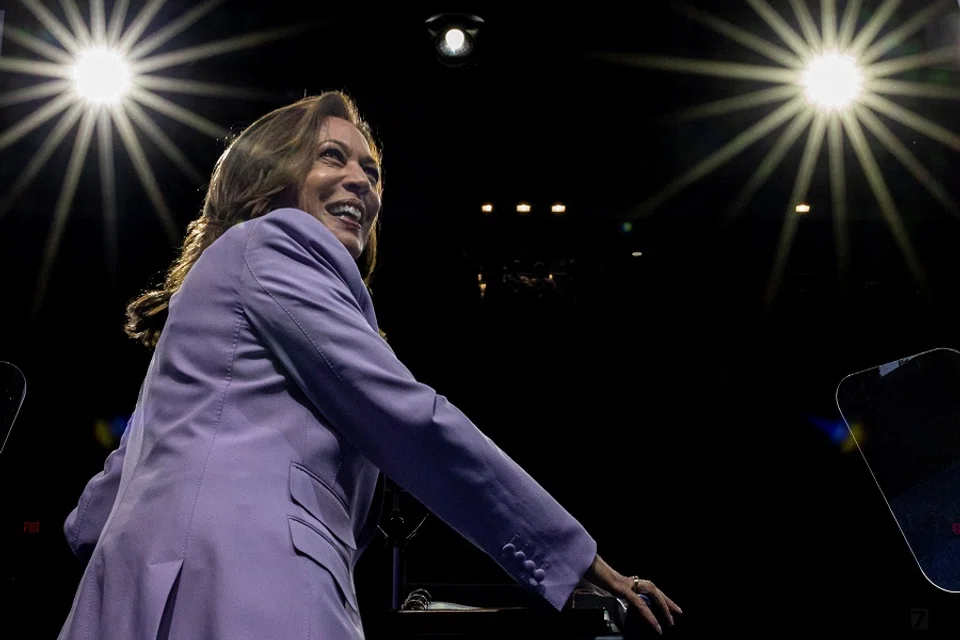
Kamala Harris was the first woman attorney general in the state of California and in 2020 became vice-president when Joe Biden was elected. Harris is the first woman to hold this second highest office in the US, as well as the first to be of African and Indian descent.
After Biden ended his reelection bid, Harris stepped up to lead the Democratic Party’s White House campaign. She has a chance to make it all the way to the top to become the first black woman president of the US.
Commanding attention
When Harris announced her bid for the Democratic Party nomination, it all seemed like smooth sailing. Within a week, she raised US$200 million for her presidential bid, and 170,000 volunteers joined her campaign team.
More Americans are also starting to pay attention to the election. After Harris became a potential presidential candidate, 38,500 new voters were registered, with those aged below 35 making up 83% of the total number of registered voters.
Cal Jillson, a professor in the Department of Political Science at the Southern Methodist University in Dallas, Texas, told Lianhe Zaobao, “Kamala Harris has re-energised Democrat voters and donors, and that new energy has pulled her even in the polls with the Republicans’ Donald Trump.”
A poll by ABC News and Ipsos conducted on 1,200 Americans nationwide on 26 and 27 July showed that her support rate had already risen to 43%, up from 35% a week ago.
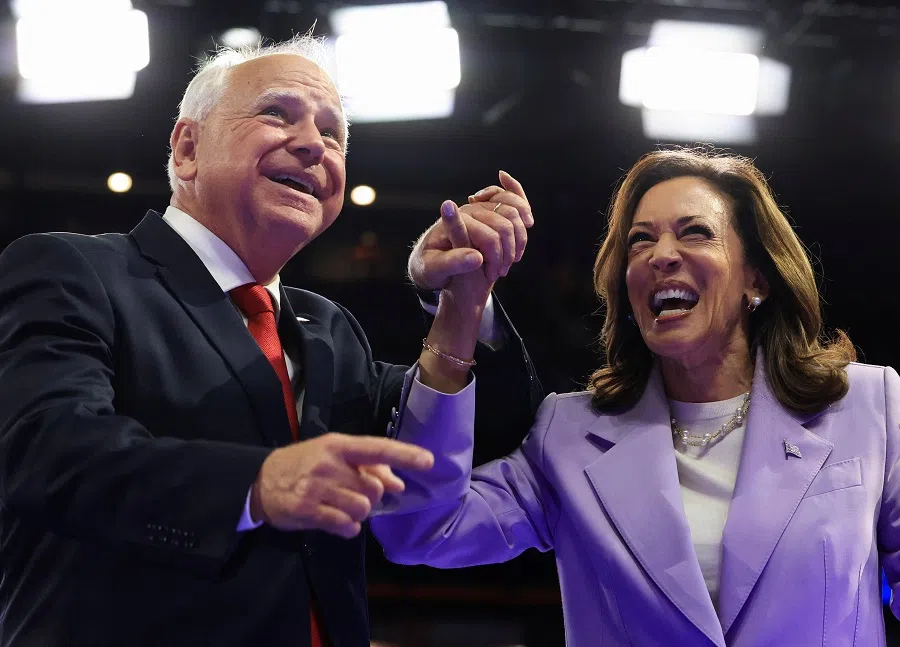
Bloomberg and polling company Morning Consult also conducted a survey from 24 to 28 July, which showed that support for Harris was rising in six of the seven swing states. Among them, poll figures showed that Harris was ahead of Trump by 11 percentage points in Michigan, and 2 points in Arizona, Wisconsin and Nevada respectively; in North Carolina and Pennsylvania, she fell behind Trump by 2 and 4 percentage points respectively, while she drew even with Trump in Georgia.
“There is a very conservative traditional white ethno-nationalist constituency within the US who will be very hesitant to vote for a woman for president, never mind a black woman.” — Gerard Toal, Professor, Government and International Affairs, Virginia Polytechnic Institute and State University
Winning over traditional white vote
Trump’s election team pointed out that the swell of support for the Democrats was merely the effect of Harris’s “honeymoon period” after replacing Biden. In reality, her bid for the White House will be met with many obstacles — including her gender and ethnicity.
Gerard Toal, a professor of Government and International Affairs at the Virginia Polytechnic Institute and State University, told Lianhe Zaobao, “The implicit patriarchal masculinity surrounding that office, the desire for the president to be ‘tough’ and ‘strong’ enough to make fundamental decisions about life and death is a formidable hurdle she [Harris] is going to have to overcome.”
Data from the Pew Research Centre showed that when Hillary Clinton, former US Secretary of State first ran for the presidency in 2016, the share of male voters she won over was over 11 percentage points lower than Trump, at only 41%. Although she won over more women voters (54%), Clinton supporters still made up only 45% of white women voters — two percentage points less than Trump. Only 32% of white male voters were Clinton supporters.
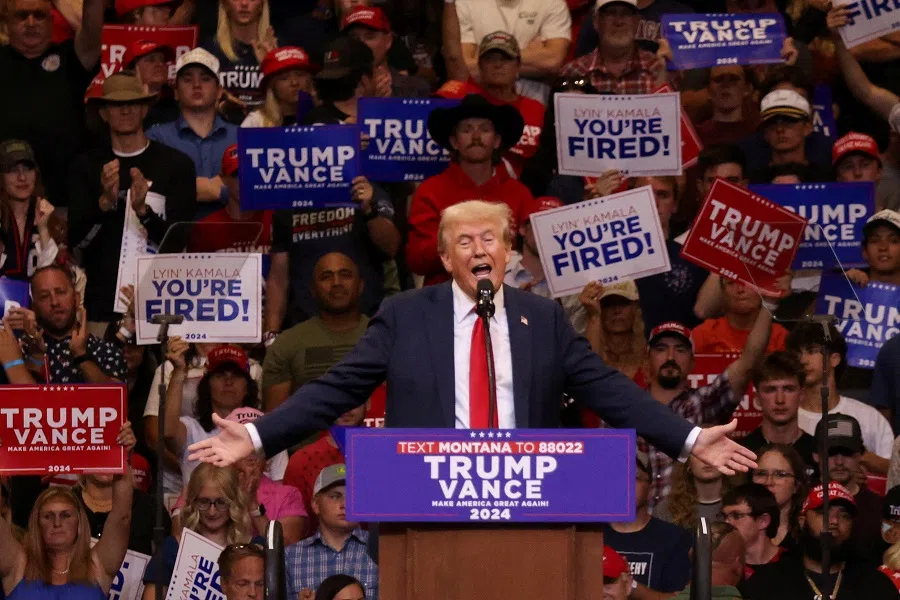
Toal said, “There is a very conservative traditional white ethno-nationalist constituency within the US who will be very hesitant to vote for a woman for president, never mind a black woman.”
Abortion rights could sway women voters
Within the Democratic Party, there are hopes that the US Supreme Court’s decision two years ago to overturn Roe vs Wade, seen by many as a safeguard for American women’s right to abortion, would spur young women to turn out to vote, or even cause some Republican voters to switch sides.
Roe vs Wade (1973) was a landmark ruling that guaranteed the constitutional right to abortion. But on 24 June 2022, five of the nine judges presiding over the highest court of law in the federal justice system voted to overturn the judgement. The Republican Party takes a strong anti-abortion stance, and six of the nine Supreme Court judges were appointed by Republican presidents.
American feminist writer Jessica Valenti said, “I think people don’t fully understand the rage women feel about the overturning of Roe v. Wade, Harris has the ability to make them understand.”
Harris has launched a nationwide Fight for Reproductive Freedoms campaign, advocating for women’s right to decide, and calling on Congress to reinstate the protection given to these rights under Roe vs Wade.
The reversal of Roe vs Wade has triggered a wave of discontent against the Republican Party, resulting in the party’s poor performance at the mid-term election.
Harris has launched a nationwide Fight for Reproductive Freedoms campaign, advocating for women’s right to decide, and calling on Congress to reinstate the protection given to these rights under Roe vs Wade.
A public poll by YouGov conducted from 19 to 21 July showed that Harris had a 12 point lead over Trump on the abortion rights issue, indicating that it might be a crucial one that would win over women voters for Harris.
She also holds strong appeal for black voters. A poll conducted by CNN and SSRS on 22 to 23 July showed her approval rate among black voters was 78%, while Trump’s was 15%.
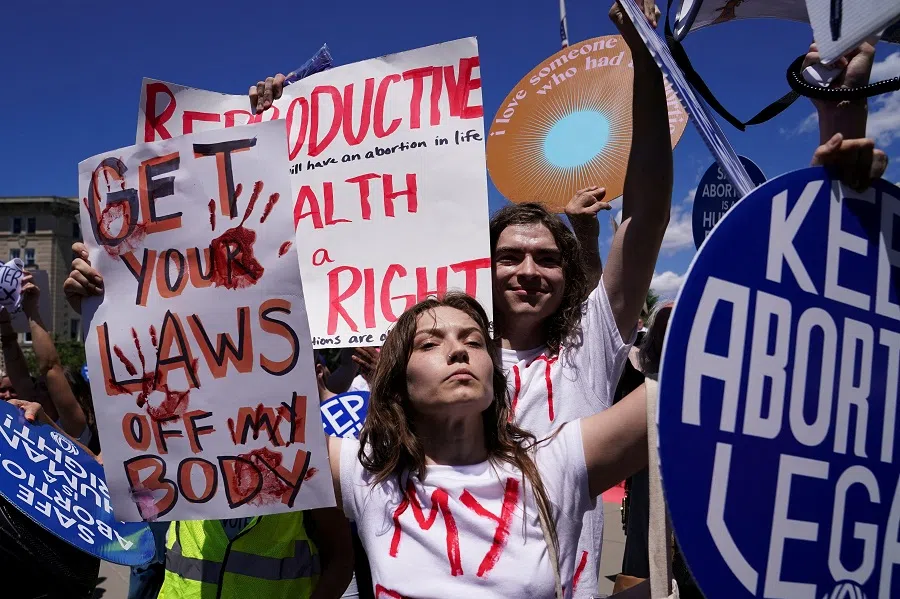
However, Harris herself seems unwilling to be defined by her identity. She once said in an interview with the Washington Post that political figures should not be limited by their racial or cultural background, and prefers to call herself “a proud American”.
Adam Garfinkle, a consultant on American politics at the S.Rajaratnam School of International Studies, Nanyang Technological University (NTU), told Lianhe Zaobao that Harris is not “typically black” in terms of complexion, speech and cultural expression, and is more reminiscent of Colin Powell and Condoleezza Rice, both former secretaries of state; and she gives the impression of being smart, confident, competent, deeply patriotic and generally attractive.
He added, “In a close election, could a fact of birth of this sort make the difference? Yes, it could. The fact that her being a woman of colour may affect her prospects in several swing states. With any luck at all, however, it won’t.”
Repeat of Hillary Clinton’s election loss despite popularity?
Garfinkle remarked that Harris lacks experience in foreign and national security policy, but at 59 years old, she has the advantage of vigour and relative youth compared with Biden, 81 and Trump, 78.
He noted that Harris also has the support of the majority of the Democratic Party. And her background as attorney general gives her credibility on issues relating to crime and illegal immigration; and she is also stronger on women’s issues and is perceived as forward-looking in policy orientation.
“Harris will have to speak to particular issues, such as immigration at the southern border of the US, crime and inflation, that worry many swing voters and others.” — Cal Jillson, Professor, Department of Political Science, Southern Methodist University, Dallas, Texas
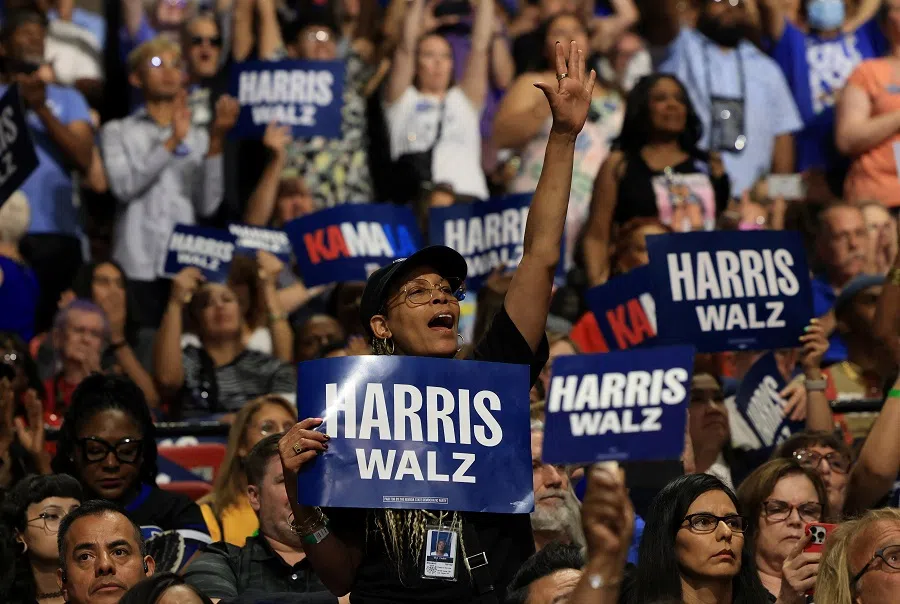
Garfinkle added, “Harris’s strengths outweigh her weaknesses. Even so, expert opinion leans to the conclusion that Harris will do significantly better in the popular vote than Biden would have, collecting significant super-majorities in major urban areas, but may do worse in the Electoral College and thus be more likely to lose the election than Biden.”
“In the US system, it is more important to win Pennsylvania by 1,000 votes than it is to win New York City and Los Angeles by 100,000 votes,” he said.
In the 2006 presidential election, Democratic Party presidential candidate Hilary Clinton won the popular vote with 2.8 million votes more than Trump. But she won only 227 electoral votes while Trump won 304, resulting in her failed bid for the White House. Observers have voiced their concern that the same may happen to Harris.
Southern Methodist University’s Jillson believes that Harris would need to present a positive and uplifting vision of the American future, and the possibilities inherent in that future for every American, in stark contrast to the dark and threatening vision presented by Trump.
He explained, “Harris will have to speak to particular issues, such as immigration at the southern border of the US, crime and inflation, that worry many swing voters and others.”
Jillson believes that for Democrat and Democrat-leaning voters, the negatives of Donald Trump will override most of their doubts about Harris and bring them in to vote for her. He said, “I expect a close election in which Harris will be competitive.”
“I think the chances of Harris winning are more than 50%, but it will nevertheless be a very hard slog. It is very likely that Trump will seek to challenge and undermine the result in any way possible. ” — Toal
Virginia Polytechnic Institute and State University’s Toal observed that in order to win, Harris would need to mobilise young voters who are disenchanted with Biden and who are generally uninterested in politics.
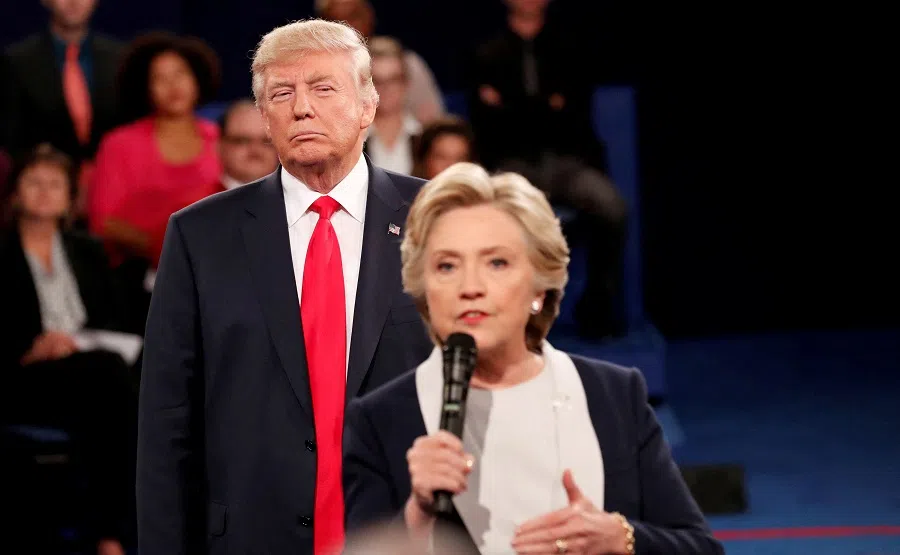
He said, “I think the chances of Harris winning are more than 50%, but it will nevertheless be a very hard slog. It is very likely that Trump will seek to challenge and undermine the result in any way possible. We cannot exclude, unfortunately, the possibility of political violence in the wake of the election.”
Asian and immigrant background may provide different perspective
Harris was born to an immigrant family in Oakland, California. Her mother is Indian and her father was born in Jamaica. After her parents divorced when she was seven, her mother raised her and her younger sister alone. Harris has often said that her mother is a strong influence in her life.
The first foreign trip Harris took as vice-president was to Southeast Asia. Over the past three years, she has been to Asia four times, visiting Singapore, Vietnam, Indonesia, Thailand and the Philippines, as well as US allies Japan and South Korea.
But analysts have deemed her visits unmemorable. In an interview with Nikkei Asia, Dhruva Jaishankar, executive director of Observer Research Foundation America, said, “She’s not articulated very strong views on [Asia]. The foreign policy issue that she has been most engaged on as vice president has been border security and migration from Latin America.”
As to whether her Asian heritage will impact her government’s policies towards Asia if she is elected, NTU’s Garfinkle pointed out that although Harris understands some Tamil terms, she is not fluent and cannot read the language. Should she be elected, she would be too occupied with national matters to immerse herself in exploring her South Asian roots.
“The US has a very large defence and foreign policy community that tends to structure how politicians see the world in very constraining ways.” — Toal
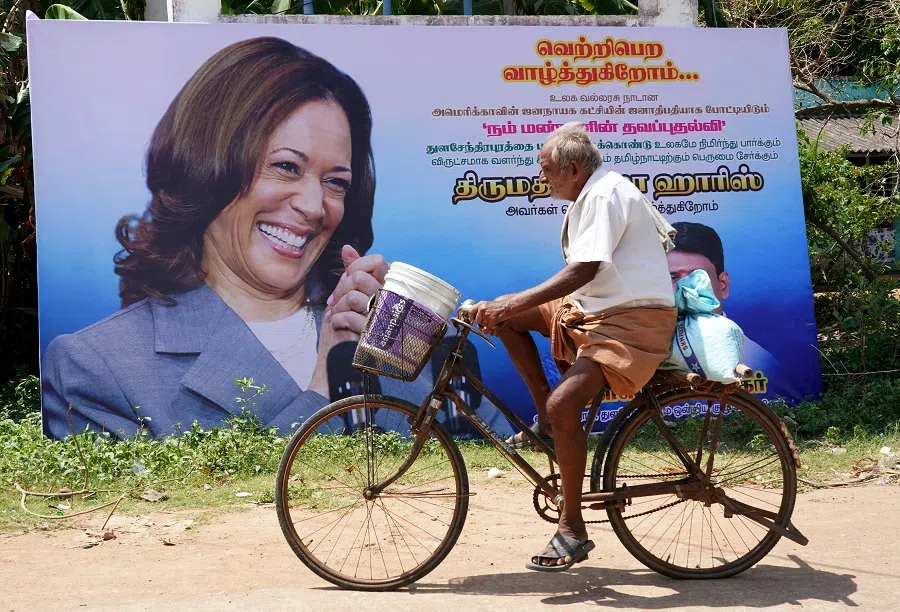
But because of her immigrant parents, Harris may have a perspective that is different from most Americans, showing more sensitivity to how things are seen outside the US. Virginia Polytechnic Institute’s Toal observed that this gives Harris an advantage.
But he also pointed, “The US has a very large defence and foreign policy community that tends to structure how politicians see the world in very constraining ways.”
Southern Methodist University’s Jillson also said that American leaders have been trying to reorient the nation’s foreign policy from its traditional focus on Europe and the Middle East to Asia for some time now, but the events of Ukraine and Gaza keep pulling their attention back.
He said, “A Harris administration, like the Biden administration, will try to focus more intently on coalition building in South and Southeast Asia from around India to Japan and Taiwan if events allow. China’s rise has slowed and no longer seems to pose the threat of displacing US influence in the region, but it remains a threat, particularly to Taiwan.”
Only four vice-presidents elected president
If Harris wins the presidential election in November, she will become not only the first black woman to become president, she will also count as one of the very few to enter the contest as a standing vice-president.
In all of America’s history, only four standing vice-presidents had won the presidential race, including John Adams, Thomas Jefferson and Martin Van Buren, the second, third and eighth US presidents respectively.
After Van Buren, the US saw a number of vice-presidents stepping into office after the death of a serving president and on one occasion, after the resignation of a president. It was not until 150 years later, in 1988, that the fourth standing vice-president was elected into the White House — George H.W. Bush, Ronald Regan’s vice-president and later the 41st US president.
Although incumbent President Biden served as vice-president in the Obama administration, he did not succeed Obama. It was former Secretary of State Hilary Clinton who ran as the Democratic Party nominee in the 2016 election; Biden won the race against Trump in 2020.
In addition to her current position as vice-president, Harris is also the president of the Senate, which means that she would have to oversee the counting of the ballot when voting ends.
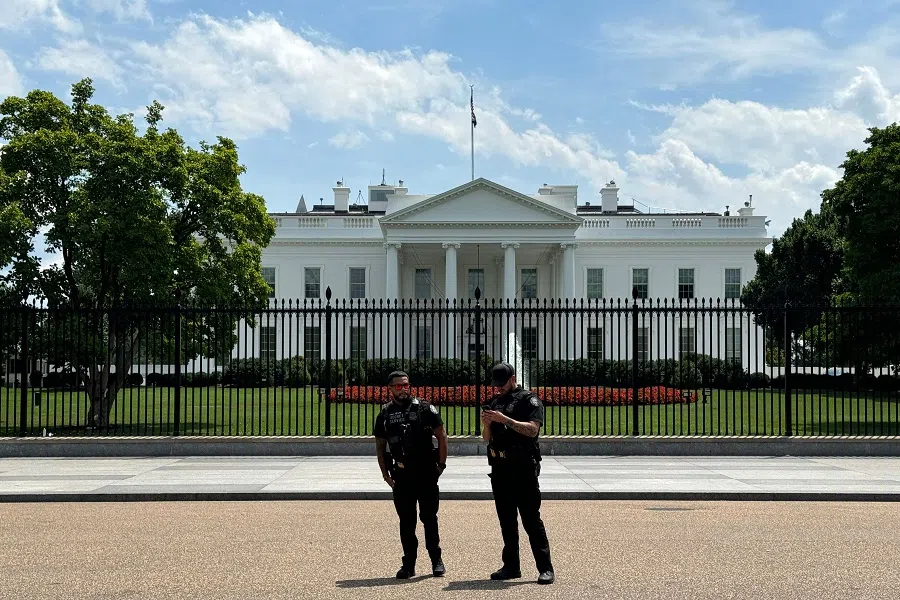
In addition to her current position as vice-president, Harris is also the president of the Senate, which means that she would have to oversee the counting of the ballot when voting ends.
After the 2020 election, Trump, who failed to win a second term, put pressure on his vice-president Mike Pence to overturn the election results. Pence defied Trump and adhered to procedural requirements to declare Biden’s election win. Insiders have divulged that Pence had told Trump that he did not believe that he had the power to change the election results.
Attention is now focused on what happens if Harris loses her bid, and if she would be able to discharge her duties in a fair and just manner to verify the result of the ballot and declare her rival the winner.
Harris’s spokesperson Kristen Allen pointed out that the vice-president is well aware that she has to oversee the vote count on 6 January next year, and views the role as largely ceremonial — to simply tally up the electoral votes certified by the states. Harris has also stated that she would not interfere in any way with the final election result.
This article was first published in Lianhe Zaobao as “玻璃天花板不破 哈里斯大位难上”.





